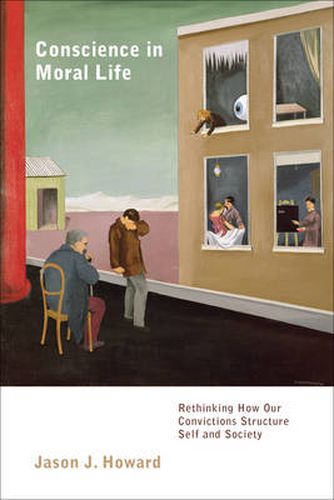Readings Newsletter
Become a Readings Member to make your shopping experience even easier.
Sign in or sign up for free!
You’re not far away from qualifying for FREE standard shipping within Australia
You’ve qualified for FREE standard shipping within Australia
The cart is loading…






The notion of conscience remains one of the most widely used moral concepts and a cornerstone of ordinary moral thinking. This book explores where this widespread confidence in conscience stems from, examining the history of conscience as a moral concept and its characteristic moral phenomenology. Jason Howard provides a comprehensive reassessment of the function of conscience in moral life, detailing along the way the manifold problems that arise when we believe our conscience is more reliable than is actually warranted.
The result is a step-by-step evaluation of our most accepted assumptions. Howard goes on to argue, from a phenomenological perspective, that conscience is indispensable for understanding moral experience. He capitalizes on a dialectical perspective developed by Hegel and Ricoeur, in which conscience is seen as the recognition of the other, and integrates this with work in the philosophy of emotion, arguing that conscience is best seen in terms of the function it serves in moderating the moral emotions of shame, guilt and pride.
$9.00 standard shipping within Australia
FREE standard shipping within Australia for orders over $100.00
Express & International shipping calculated at checkout
The notion of conscience remains one of the most widely used moral concepts and a cornerstone of ordinary moral thinking. This book explores where this widespread confidence in conscience stems from, examining the history of conscience as a moral concept and its characteristic moral phenomenology. Jason Howard provides a comprehensive reassessment of the function of conscience in moral life, detailing along the way the manifold problems that arise when we believe our conscience is more reliable than is actually warranted.
The result is a step-by-step evaluation of our most accepted assumptions. Howard goes on to argue, from a phenomenological perspective, that conscience is indispensable for understanding moral experience. He capitalizes on a dialectical perspective developed by Hegel and Ricoeur, in which conscience is seen as the recognition of the other, and integrates this with work in the philosophy of emotion, arguing that conscience is best seen in terms of the function it serves in moderating the moral emotions of shame, guilt and pride.